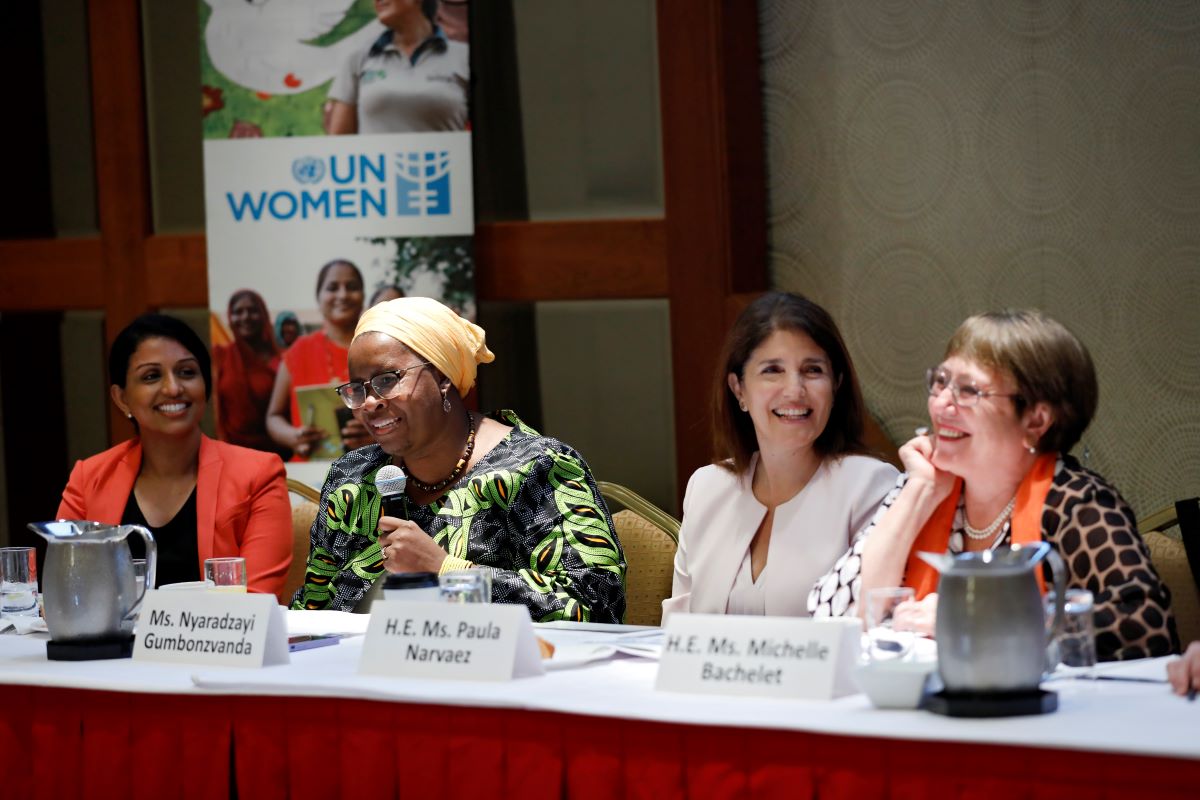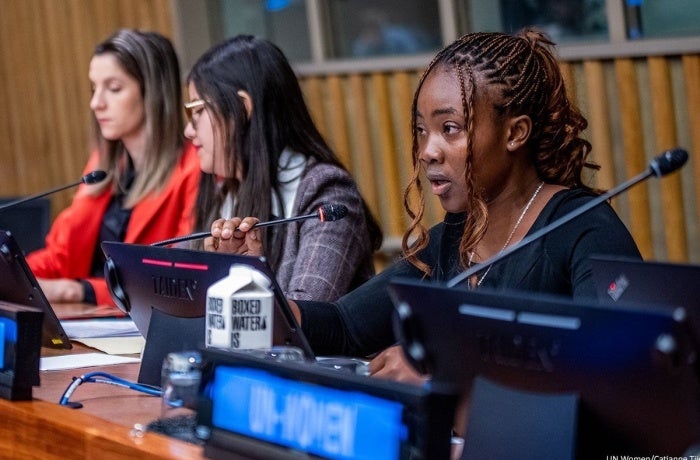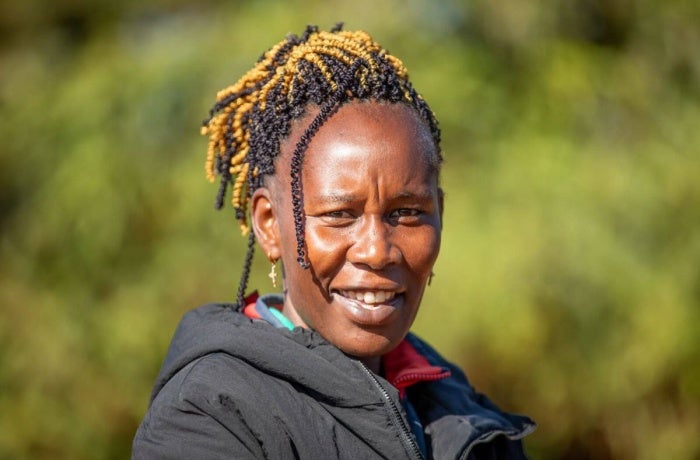Accelerating progress on gender equality is key for achieving the Sustainable Development Goals
A high-level event at the United Nations discusses UN Women’s Gender Equality Accelerators to drive collective action.
On the occasion of the High-Level Political Forum (HLPF) on July 15, 2024, UN Women convened feminists, experts, UN officials and other key development actors to present and discuss the Gender Equality Accelerators (GEAs) for the SDGs, particularly SDG 5. The Accelerators are solutions to drive focused, collective action to speed and scale up results for women and girls.

In her video message, Sima Bahous, Executive Director of UN Women, reiterated the relevance of the Beijing Platform for Action and highlighted the stark reality presented in the 2023 SDG Gender Snapshot report. Despite global efforts, the world is lagging in achieving gender equality. She shared key data points illustrating the slow progress in women's participation in decision-making, economic insecurity, and ongoing violence against women.
“Economic insecurity continues to be a great concern,” she said. “Despite the global unemployment rate hitting a historic low of 5 per cent in 2023, women continue to face higher unemployment rates than men. Women continue to carry the responsibility of unpaid domestic and care work, spending 2.5 times more hours a day on this.”
Michelle Bachelet, former President of Chile, former Executive Director of UN Women, and former United Nations High Commissioner of Human Rights, reminded us in her keynote speech that "the importance of achieving gender equality has no parallel. Our world will not accomplish its full potential if we don't harness all that we can contribute with our ideas, vision, and experience. ”
Participants acknowledged that neglecting SDG 5 (Gender Equality) endangers the entire 2030 Agenda for Sustainable Development and rallied around the need for collective action. “The Ten Gender Equality Accelerators are vital markers for progress, ensuring focus and accountability in our efforts through the remainder of the decade,” said the President of the United Nations Economic and Social Council (ECOSOC) and Permanent Representative of Chile to the United Nations, Ambassador Paula Narváez.
Ten Gender Equality Accelerators
From increasing women’s equal participation in decision-making to supporting countries in improving the production and use of gender data, , the GEAs aim to address the most pressing challenges in realizing the human rights of all women and girls and achieving gender equality across the SDGs. They are evidence-based programmatic frameworks that translate international guidance on gender equality into local initiatives.
The accelerators are built on successful joint programmes with UN partners and tested approaches offered to the Resident Coordinator system and UN Country Teams for collective action. In her intervention, UN WomenDeputy Executive Director Nyaradzayi Gumbonzvanda stressed that, "we must leverage existing and new partnerships with UN organizations, national governments, civil society, local women's rights organizations, and the private sector to work together and focus on systems change."
Focusing on the Transforming Care Systems Accelerator, a fireside chat engaged participants in a discussion on the innovative solutions and collaborative efforts needed to turn goals into reality. "Transforming care systems is essential for building resilience to crises and achieving gender equality," said Cynthia Samuel-Olonjuwon, ILO Special Representative to the UN. Referring to the relevance of the Transforming Care System Accelerator, she emphasized that, "by supporting workers with family responsibilities and ensuring quality care, we can advance social justice and decent work for all in the recognition that care work, paid or unpaid, is essential to all other work."
Hugo Allan García, Subsecretary of Planning of Guatemala shared that his country has included a gender equality approach into its national planning system, adding that, “this approach serves as an analytical criterion and methodological tool to understand the power dynamics and gender gaps in the access to goods and services, exercising rights, participation and equal opportunities for all."
Looking ahead, the Call to Action is clear. Achieving gender equality and women's rights demands strategic and coordinated action. All are invited to use the GEAs to step up collective efforts and drive progress across the entire 2030 Agenda for Sustainable Development.
For more information, please read our Gender Equality Accelerators booklet and brochure available on UN Women’s website.








